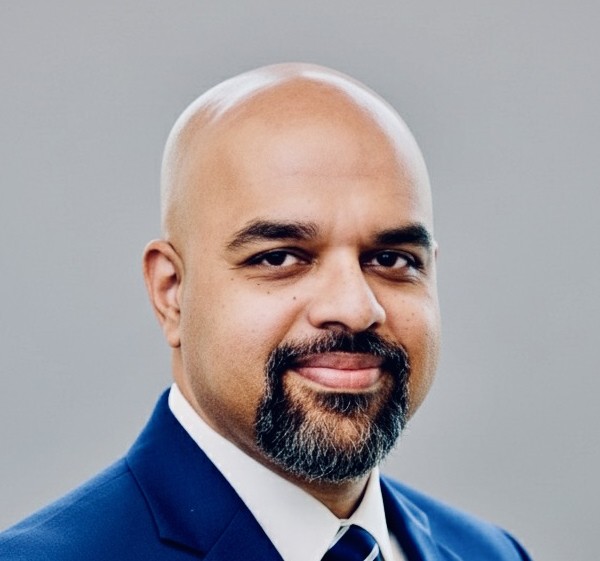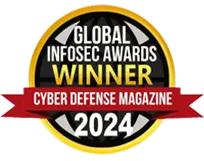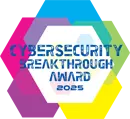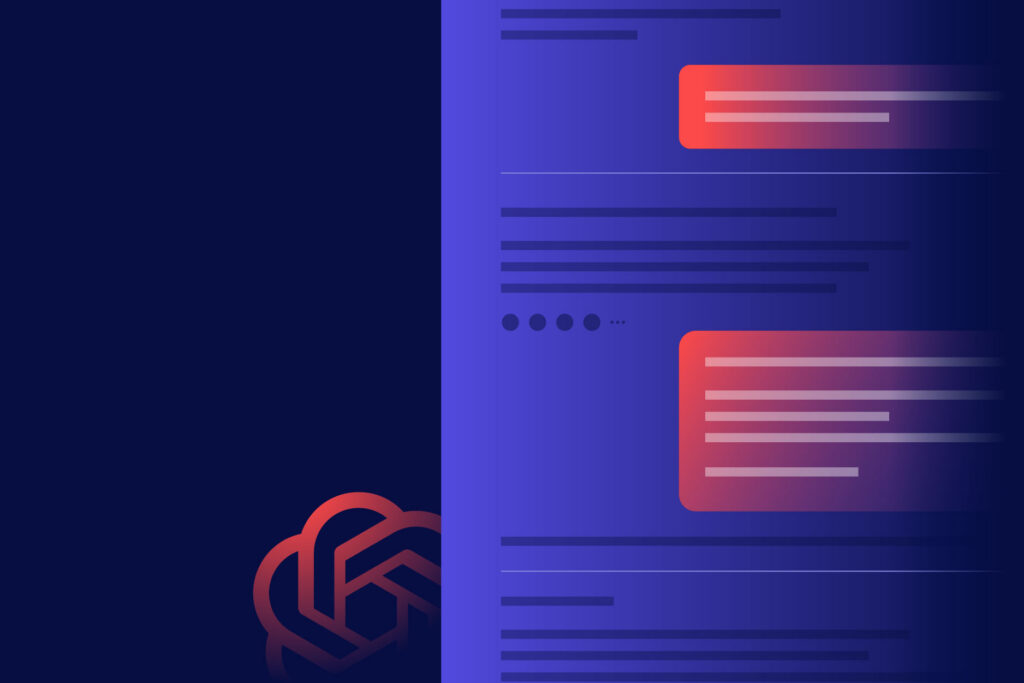SEASON 1 IS HERE
AI, Cybersecurity &
the New Era of Fraud
Socially engineered fraud has evolved. How you prioritize defenses should, too.
Join us for a limited web series on how GenAI is accelerating socially engineered attacks—enabling bad actors to better deceive people, bypass controls, and infiltrate inboxes, approval flows, and payment systems disguised as legitimate business. These AI-driven threats are slipping through traditional defenses and costing organizations millions.
To stay protected, companies must adopt new approaches that detect and prevent these high-impact attacks—focused on real business consequences.
In this series we’ll explore:
- How GenAI is evolving socially engineered fraud
- The vulnerability gaps attackers target
- How these threats are launched—and succeed—in practice
- How to best prioritize threats to improve business resilience and efficiency
All attendees are eligible for up to 6 CPE credits.
Register For Future Episodes
EPISODE 7
When Detection Fails—Securing the Modern Digital Estate
Watch On-demand
Speaker:
VJ Viswanathan, Cybersecurity Executive & Board Advisor
If your security strategy depends on detection, you’re already behind. AI-powered attacks increasingly exploit supply chains, identities, and automation, evading alerts and moving faster than response teams can react. In this episode, VJ Viswanathan brings a global technology and security leader’s perspective on how organizations must rethink protection for modern digital estates.
-
- You’ll learn:
-
-
- How AI-driven attacks bypass traditional detection
- Why visibility across cloud, SaaS, and AI environments matters
- A smarter approach to security that validates intent—not just identity
-
EPISODE 6
Hacked Minds—How GenAI Exploits Human Bias in Social Engineering
Watch On-demand
Speaker:
Dr. Jessica Barker, Cybersecurity Expert & Humanist
Hacking code is hard. Hacking minds is easier—especially with GenAI. In this episode, Dr. Jessica Barker, who explores the psychology, neuroscience, and sociology of scams, unveils the human biases that trick even experienced finance and security teams with deepfakes, fake invoices, and other socially engineered fraud.
-
- You’ll learn:
-
-
- Which human biases AI exploits to bypass finance and security teams
- How siloed decision-making makes teams easier to manipulate
- A smarter way to train teams with behavior-focused defense
-
EPISODE 5
Split Defenses—How Fraud Slips Through Finance & Security Blind Spots
Watch On-demand
Speaker:
Theresa Payton, Former White House CIO & AI Strategist
Fraud thrives when finance and security work in isolation. In this episode, Theresa Payton, the first female White House CIO and one of the nation’s top cybersecurity authorities, will share why finance and security must work hand in glove to stop today’s most advanced fraud. Backed by new findings from the Trustmi 2025 Socially Engineered Fraud & Risk Report, she’ll show what it takes to close the gaps and protect against evolving threats.
You’ll learn:
- Where finance–security gaps create blind spots attackers exploit
- How misalignment helps fraud bypass legacy controls
- A smarter way to unite teams and stop attacks before the money moves
EPISODE 4
Anatomy of a Hack—Live Demo of End-to-End Payment Fraud
Watch On-Demand
Speaker:
FC (FreakyClown), Ethical Hacker & Social Engineer
Today’s payment fraud isn’t a single deepfake—it’s a Ocean’s Eleven-style operation. In this live hacking demo, renowned ethical hacker FC walks through each step of a modern multi-vector attack. See how attacker strategies are evolving as GenAI, social engineering, and technical exploits combine into coordinated campaigns that steal millions without triggering traditional defenses.
You’ll learn:
- How attackers mimic trust and manipulate real payment workflows
- Where traditional defenses fail to detect today’s multi-vector fraud
- A smarter way to stop coordinated attacks before the money moves
EPISODE 3
AI, Cybersecurity . . . and How to Drive ROI
Watch On-Demand
Speakers:
Irina Singh, Director of IT at Baxter
Tomer Amitai, CFO at Natural Intelligence
Discover how modern security and finance teams are bridging the gap to reduce socially engineered fraud, uncover hidden operational losses, and drive greater ROI from cybersecurity investments. Learn how to prioritize risk based on financial impact—not fear.
You’ll learn:
- How to reduce fraud and uncover hidden losses across financial systems
- Where to detect waste, redundancies, and process gaps that increase risk
- A smarter way to prioritize protection based on financial impact
EPISODE 2
AI-Enhanced Social Engineering—Live Hacking Demo
Watch On-Demand
Speaker:
Rachel Tobac, Ethical Hacker
See how GenAI is enabling large-scale, highly targeted fraud campaigns that bypass traditional defenses. Learn why social engineering threats are scaling, which gaps are most exploited, and how to prioritize defenses based on real financial impact.
You’ll learn:
- Why the scale and precision of cyber fraud has changed
- How social engineering is being used to bypass traditional defenses like identity and email security
- A smarter way to prioritize protection based on cost, complexity, and consequences
EPISODE 1
AI-Supercharged Cyber Fraud—and How to Prioritize Defense
Watch On-Demand
Speaker:
Curtis Simpson, CISO at Armis
Experience a live hacking demo by renowned ethical hacker Rachel Tobac. See how today’s fraudsters use GenAI to exploit human trust, bypass security tools, and compromise financial workflows—executing sophisticated attacks traditional defenses often miss.
You’ll learn:
- Why social engineering is harder to stop—and more expensive than ever
- How GenAI is used to breach people, processes, and payment systems
- A smarter way to defend against advanced fraud with behavior-based detection

Curtis Simpson
CISO at Armis
AI-Supercharged Cyber Fraud—and How to Prioritize Defense
Watch On-Demand
Curtis is the Chief Information Security Officer at Armis, the Cyber Exposure Management & Security Company. He has more than 15 years of experience in IT, with a deep focus on cybersecurity over the past decade.
Curtis has led global security programs that reduce risk, boost resilience, and deliver real business impact. His work has helped save over $1 million in costs and recovered $2 million in productivity across enterprise environments.

Rachel Tobac
Ethical Hacker & CEO of SocialProof Security
AI-Enhanced Social Engineering—Live Hacking Demo
Watch On-demand
is an ethical hacker and the CEO of SocialProof Security, where she helps companies and individuals stay secure by simulating real-world social engineering attacks. She got her start placing second in DEF CON’s Social Engineering Competition three years in a row — and hasn’t stopped hacking since. Rachel has advised national cybersecurity strategy as a member of CISA’s Technical Advisory Council under Director Jen Easterly.
Her work has been featured on 60 Minutes, NPR, CNN, and Last Week Tonight with John Oliver, and she currently serves as Chair of the Board for Women in Security and Privacy (WISP).

Irina Singh
Director of IT at Baxter
AI, Cybersecurity . . . and How to Drive ROI
Watch On-demand
Irina is the Director of IT at Baxter, where she leads the Office of the CISO and drives enterprise-wide cybersecurity initiatives to protect critical systems and data. With over 20 years of experience, she’s known for translating complex risk into clear business action and aligning technical and executive priorities.
Previously at Medtronic, Irina established and led a Business Information Security team that partnered with operating units and corporate functions to strengthen resilience. Her work aligned with leading frameworks like NIST, HITRUST, HIPAA, and ISO 27001—translating complex requirements into effective security strategies.
She’s a trusted connector and advocate for cross-functional alignment, and is passionate about advancing diversity in cybersecurity. Irina serves as a board advisor for ISACA Minnesota, sits on the board of InfraGard MN, and founded the Health-ISAC BISO Working Group.

Tomer Amitai
CFO at Natural Intelligence
AI, Cybersecurity . . . and How to Drive ROI
Watch On-demand
Tomer is the Chief Financial Officer at Natural Intelligence, a global tech company helping millions of consumers make smarter online decisions. With over 20 years of experience spanning finance, law, and technology, he brings a multidimensional view of risk, resilience, and business performance.
Before joining Natural Intelligence, Tomer spent over a decade at Teva Pharmaceuticals in senior finance roles including Group Treasurer, Chief of Staff to the CEO, and Head of Investor Relations. He is also the Co-Founder of Suitera Ventures, where he advises and invests in start-ups building technology for the modern CFO.

FC (FreakyClown)
Ethical Hacker & Social Engineer
Anatomy of a Hack—Live Demo of End-to-End Payment Fraud
Watch On-demand
FC is a renowned ethical hacker and co-founder of Cygenta, where he helps organizations understand how attackers exploit both human and technical vulnerabilities. Known for his sharp, entertaining style, FC has spent decades legally breaking into banks, government agencies, and global enterprises to expose security gaps.
He previously served as Head of Offensive Cyber Research at Raytheon and is the author of the bestselling book How I Rob Banks. Through live demos and real-world stories, FC offers a rare window into the tactics modern attackers use to breach systems and steal millions.

Theresa Payton
First Female White House CIO; AI Strategist; Security & Privacy Visionary
Split Defenses—How Fraud Slips Through Finance & Security Blind Spots
Watch On-demand
Theresa Payton is one of America’s most respected cybersecurity authorities and the first woman to serve as White House CIO. A two-time founder and CEO, inventor, and U.S. patent holder, she has been recognized among the Top 50 Women in Tech and Top 50 Cybersecurity Leaders for helping businesses and governments stay secure in a rapidly changing digital world.
As CEO of Fortalice Solutions and co-founder of Dark3 (acquired by Celerium), Payton has advised Fortune 500 companies, government agencies, and global enterprises on balancing the risks and rewards of emerging technologies. She is also the author of three books, including Manipulated: Inside the Cyberwar to Hijack Elections and Distort the Truth . Named one of the most influential people in cybersecurity, she brings unmatched insight on the intersection of AI, fraud, and security—and how leaders can build resilient defenses against modern threats.

Dr. Jessica Barker
Cybersecurity Expert & Humanist
Hacked Minds—How GenAI Exploits Human Bias in Social Engineering
Watch On-demand
Dr. Jessica Barker is a world-renowned leader on the human side of cybersecurity, named one of the UK’s Top 20 Most Influential Women in Cybersecurity. She specializes in the psychology, sociology, and neuroscience of scams, helping organizations understand how attackers exploit human bias to manipulate employees and bypass defenses. Known for her eye-opening keynotes, Jessica translates complex human vulnerabilities into practical lessons that make teams more vigilant against cybercrime.
A frequent expert voice for outlets such as BBC, Sky News, and Wired, Jessica has spoken at NATO, RSA, and the World Government Summit. She serves on the UK Government Cyber Security Advisory Board, is the bestselling author of Confident Cyber Security, and was awarded an MBE by King Charles III in 2023 for services to cybersecurity. She is also co-founder of the UK cybersecurity firm Cygenta, alongside her husband, ethical hacker FC (“FreakyClown”).

VJ Viswanathan
Cybersecurity Executive & Board Advisor
When Detection Fails—Securing the Modern Digital Estate
Watch On-demand
VJ Viswanathan is a global technology and security executive with more than 25 years of experience spanning AI, cloud and enterprise platforms, cybersecurity, privacy, and technology risk He has held senior executive roles at large enterprises including Keurig Dr Pepper, Comcast, HD Supply & GE where he led technology, cybersecurity, privacy, and risk programs across highly complex and distributed environments.
Today, VJ works with boards and executive teams on the security challenges created by AI, automation, and digital sprawl—helping leaders understand where traditional security models fall short and how to adapt. He currently serves as Founding Partner of CYFORIX and CEO of TORQE, focused on strategic defense and enterprise transformation.

OUR APPROACH
Trustmi’s Behavioral AI Platform Eliminates The Biggest Cyber Threat with End-to-End Protection
Trustmi delivers a centralized, fully automated solution that safeguards the entire B2B payment lifecycle, proactively addressing the root cause of financial fraud—socially engineered cyberattacks—while reducing manual effort and errors.
Trustmi pulls data from various financial systems and combines it with other critical data points to validate transactions in real time, stopping fraud attempts stemming from social engineering before they cause harm.
Trustmi analyzes patterns across vendors, payment data, emails, and financial documents, detecting sophisticated social engineering tactics and ensuring holistic fraud detection beyond limited channels.
Trustmi seamlessly integrates with your payment ecosystem, ensuring uninterrupted operations while delivering robust protection against socially engineered cyberattacks targeting your payments.
Trusted by Finance and Security Leaders






"Trustmi provided transparency into our payment process to see where cyberattacks and errors were happening and full protection without changing our workflow."
"Like many businesses today, we've experienced cyber attacks on our payment process, but we didn't realize the extent to which we were at risk until we evaluated Trustmi. Now we're confident we'll be able to avoid future attacks with their platform."
"Trustmi's platform is an important tool for our team. Their Payment Flows module increases our payment cycle security, and our team has also managed to cut down the time for preparing payments reports from half a day to half an hour."
